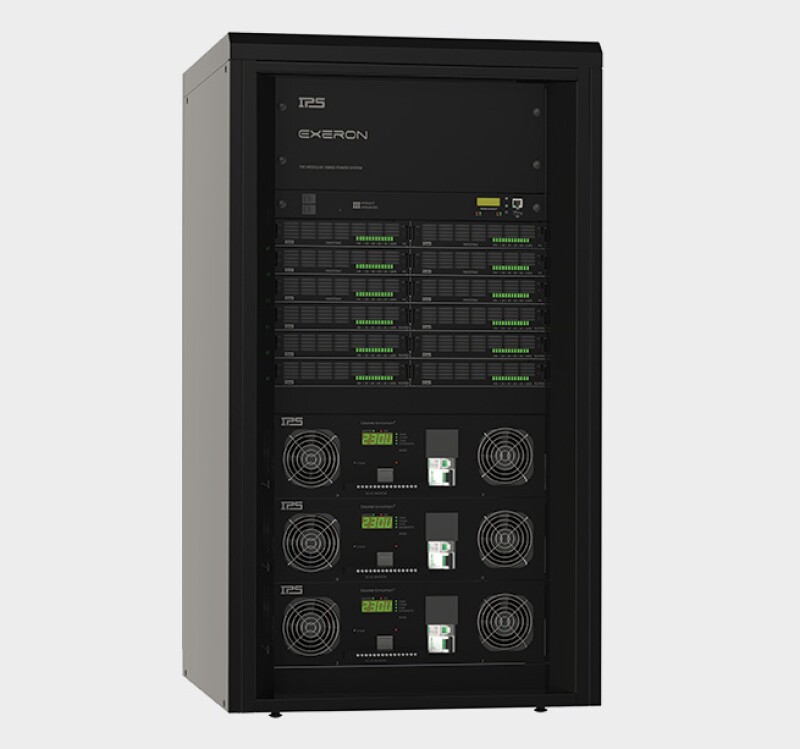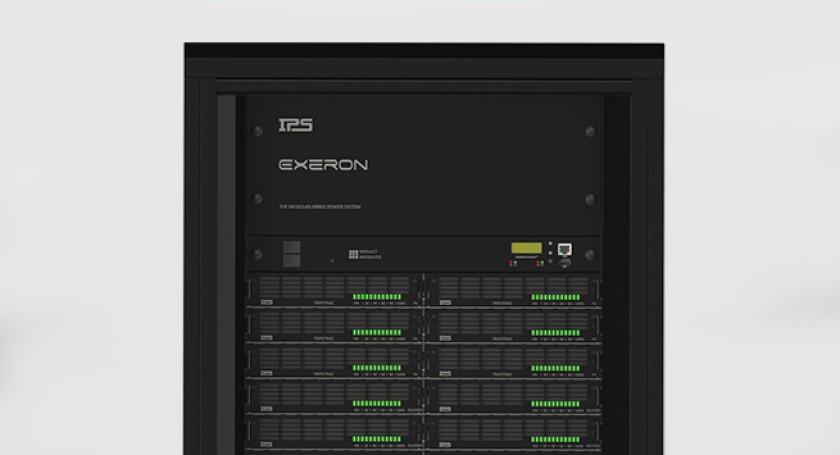International Power Supply (IPS) has developed a robust, military-grade off-grid power solution, which has now been refined for virtually maintenance free operation in telecom applications. IPS’s modular solution is readily upgradeable for the era of infrastructure sharing, and has the advantage of all the components having been developed and sourced from the same manufacturer. TowerXchange spoke to CEO Alexander Rangelov to learn more…
TowerXchange: Please introduce International Power Supply to our readers – where do you fit in the telecoms infrastructure ecosystem?
Alexander Rangelov, CEO, IPS:
IPS is a 26 year experienced high tech company specialised in the R&D and manufacturing of power electronics and energy conversion technologies for the areas of telecommunications, off-grid electricity, defense and railways. We are deeply specialised in the design and development of complete telecom indoor and outdoor power solutions for both grid connected and off-grid applications. Our portfolio includes all kinds of power components and solutions needed for telecom infrastructure, all of which are developed, designed and manufactured by us in Sofia, Bulgaria (EU).
TowerrXchange: What has attracted PTIG, PostScriptum Ventures and BlackPeak Captial to invest in IPS and how are you going to deploy the capital?
Alexander Rangelov, CEO, IPS:
Our investors have been attracted from our unique and innovative product: EXERON – The Off-Grid Beast. It was invented by IPS initially for military applications (powering communication infrastructure and desert camps) for providing reliable power in remote and hardly accessible areas with harsh ambient conditions. In the last seven years we developed the system to become a solution addressing the global electricity and environmental problem. The fast market penetration and international recognition we have achieved, the IPS team’s passion and our enormous R&D ability made our investors keen on supporting our global expansion. The capital is invested in R&D, business and market development, new logistic hubs and offices around the world as well as manufacturing facilities.
IPS has partners, distributors and operating systems in 51 countries. Offices, logistics hubs and service points are distributed worldwide at strategic locations.
TowerXchange: How are your solutions proven in terms of their ability to reduce opex in distributed telecom networks?
Alexander Rangelov, CEO, IPS:
Regarding opex reduction, it is very important to find the optimum correlation between the opex reduction level and the return of investment (RoI) period. With one of our projects with a large telco group we achieved 96% telecom opex reduction and a 16 month return of investment period for a diesel generator powered off-grid site with 1.5 kW constant telecom load. This result is thanks to the highest integration level of the EXERON system components and the innovative process and battery management. IPS developed unique software for dynamic control of the battery charging process, leading to extending the battery life by approximately 30%.
we achieved 96% telecom opex reduction and a 16 month return of investment period for a diesel generator powered off-grid site with 1.5 kW constant telecom load
TowerXchange: What is the “sweet spot” in terms of the kW load on the site which EXERON is able to support?
Alexander Rangelov, CEO, IPS:
We are not limited to any output power. The whole EXERON system structure is based on power modules of 2 kW or 4 kW. So the minimum power step is practically 2 kW. The unique IPS communication protocol can address up to 16,300 modules simultaneously. So, this means 16,300 modules x 2 kW or 4 kW.
A large number of modules are used in our mini grid applications, but for telecom applications typical numbers would be 2 kW, 4 kW, 6 kW, or up to 36 kW in some special cases.
TowerXchange: Tell us about IPS’s EXERON system and how it meets the needs of towercos who need to increase the power capacity at cell sites as additional tenants are added?
Alexander Rangelov, CEO, IPS:
The modular system structure offers great scalability and flexibility. There is only one unit (MCU – Main Control Unit) that monitors and controls all system modules (rectifiers, solar charge controllers, inverters, DC-DC converters). All of them are hot pluggable. The power capacity extension for any power system component is easily done by simply adding new plug&play power modules. The advantage of having only one MCU for the whole system, and sourcing all modules from only one manufacturer, is great efficiency, redundancy and self-control. It is the base for the intelligent mini-grid systems. It is unique because the same EXERON technology with the same control unit that is used for telco towers can be deployed as a mini-grid electricity solution for villages controlling and monitoring over 16,300 power modules corresponding to 65 MW of power. That is why we call it EXERON – The Off-Grid Beast!

TowerXchange: Tower companies’ Service Level Agreements (SLAs) often demand 99.5-99.9% uptime – tell us about the reliability and autonomy of your solution.
Alexander Rangelov, CEO, IPS:
IPS is developing and manufacturing all products under the NATO military standard for quality AQAP 2110, so every single component meets higher requirements than usual. As mentioned before the EXERON system has been developed initially for military applications in remote areas. A big advantage is that it can operate in very harsh ambient conditions with temperatures between -40°C and +80°C, heights above 4000m above sea level, high humidity and salinity, acid environments et cetera. These features are not always the case for civil applications but have high importance for the telco companies in some areas of Africa, Asia and South America.
TowerXchange: How do you ensure ease of delivery, installation and maintenance of your solutions at remote cell sites?
Alexander Rangelov, CEO, IPS:
The ease of delivery is guaranteed with the new manufacturing facilities that we have built and the logistics hubs in Africa, Asia, Australia and America.
The ease of installation is guaranteed in a few simple steps, since everything is included and pre-installed in the system. The EXERON runs basically maintenance free, however if some of the modules need to be exchanged – it takes not more than ten seconds, because every single system module is hot pluggable (rectifiers, solar charge controllers, inverters, DC-DC converters, the MCU – Main Control Unit, surge protection devices et cetera). Another big advantage is that an outage in one of the modules or more of them cannot lead to a full system stop. Even in case of main control unit failure, the system will continue its operation unchanged.
Following the military standards for quality during the development phases and manufacturing, a high system availability and robustness is guaranteed. It is a clear advantage and of crucial importance for remote, hardly accessible and long-distance site locations, which leads directly to reduced opex costs.
TowerXchange: Should remote monitoring capabilities be built in to energy systems or should third party RMS be used to monitor performance?
Alexander Rangelov, CEO, IPS:
Yes, the remote monitoring is built in to the EXERON. It offers three options for remote monitoring and signaling: there are potential free contacts for signaling (event relays), there is an SNMP monitoring, and the third one is the integrated web server in the MCU. It is accessible through HTTP. You can monitor, but also control the functions and parameters of the system. The MCU can also monitor and transfer the signals from different sensors that can be connected to the EXERON – smoke, fire, humidity, temperature, et cetera: up to 16 sensors.
TowerXchange: Do you see IPS being a pure solution provider, or do you have any appetite to explore energy services company (ESCO) business models?
Alexander Rangelov, CEO, IPS:
IPS is a R&D and manufacturing company, so in this aspect we are a pure solution provider. In 2016 together with our investors we started offering also the ESCO business model, but mainly for residential applications.
TowerXchange: How would you differentiate IPS and Exeron from competitive modular hybrid energy solutions?
Alexander Rangelov, CEO, IPS:
In just a few words: better performance, faster RoI, robustness, advanced features and functionality, a global all-in-one scalable solution, leading to outstanding opex savings.
EXERON is a multi-talented beast! It can be used for grid connected sites in the way of a customised outdoor cabinet with a purely modular rectifier. At the same time EXERON can be deployed to control and optimise hybrid diesel genset-battery sites, but also PV-diesel-battery sites. The good thing is that it can start as grid connected or hybrid configuration and then at anytime new power modules can be added – solar charge controllers and/or inverters. All within the same architecture. And under the same MCU control unit.
better performance, faster RoI, robustness, advanced features and functionality, a global all-in-one scalable solution, leading to outstanding opex savings
To mention it again, our clear advantage over other solutions is the fact that we develop and manufacture all the system modules. At the end they talk to each other in the system via a unique communication protocol, developed by IPS and delivering optimal performance and efficiency. In addition, we have the ability to scale our power modules. There are a lot good solutions and products on the market, but they have limitations. Still in 2014 in Germany, EXERON won the world innovation ees Award for innovative off-grid power systems with energy storage. We are continuously developing the system and believe that this is the only way to break limits and create innovative functionalities and features.
IPS designs and manufactures not only the power systems, but also the proper environment - enclosures and outdoor cabinets with many options, heat exchange options, but also with our own developed air conditioning module. We have even built a redundant air conditioner for cooling and heating. It’s virtually maintenance free! Sounds good?!
TowerXchange: What’s next for IPS and EXERON?
Alexander Rangelov, CEO, IPS:
We are ready to open a new chapter in IPS’s successful history in the next couple of months, which will be a huge technological jump. In the beginning of 2017 we are planning to release a new storage technology integrated in the EXERON which will offer the long life and multicycle ability of Lithium-based batteries, but at the price levels of Lead-based batteries. Keep an eye on IPS and EXERON-The Off-Grid Beast!
TowerXchange are delighted to announce IPS as the Diamond Sponsors of the TowerXchange Meetup Africa! Come and see EXERON – The Off-Grid Beast on October 19-20 at the Sandton Convention Centre, Johannesburg!

